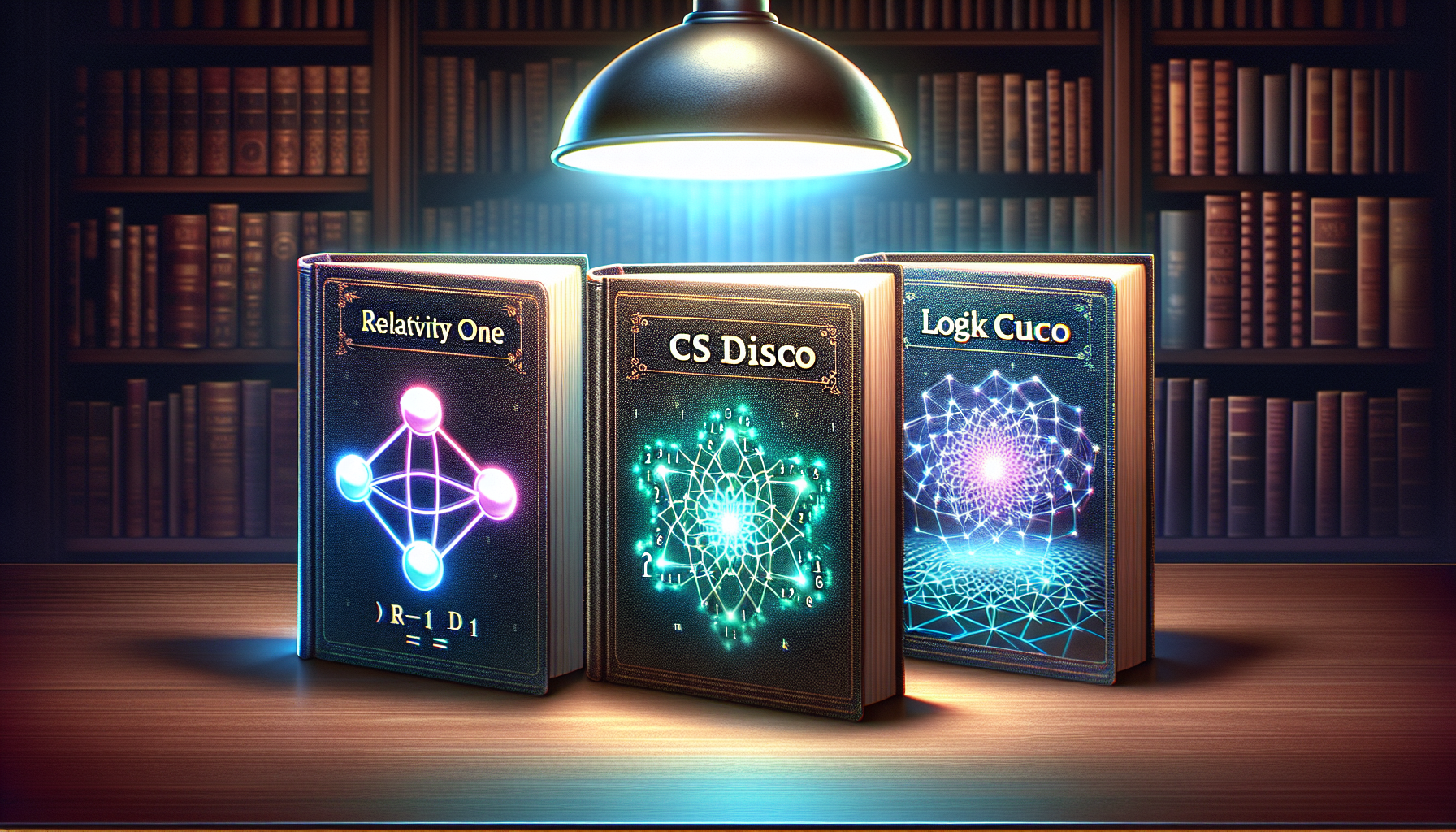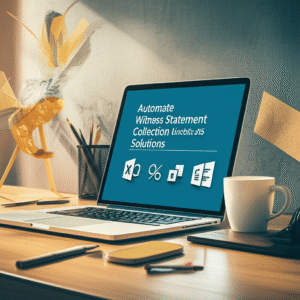RelativityOne vs CS Disco vs Logikcull: Which Cloud eDiscovery Platform Fits Your Firm?
Estimated reading time: 9–12 minutes
Overview / Introduction
RelativityOne, CS Disco (DISCO), and Logikcull are among the most frequently evaluated cloud eDiscovery platforms by litigation teams, corporate legal departments, and legal service providers. This comparison highlights real differences in features, use cases, and user experience—and maps those choices to Microsoft 365 governance and automation—so you can make a confident, defensible selection.
Bottom line: RelativityOne is the enterprise workhorse for large, complex matters; DISCO emphasizes cloud-native speed, AI, and usability for mid-to-large matters; Logikcull excels in small-to-mid matters, investigations, and quick-turn reviews.
Products Compared
- RelativityOne — Enterprise-grade, highly customizable review with advanced analytics; common among large organizations and service providers. Users note power and occasional “clunkiness.” Document review score: 9.1 (G2). Sources: G2: Logikcull vs Relativity, G2: DISCO vs Relativity
- CS Disco (DISCO) — Cloud-native, AI-forward with Google-like search and fast performance; strong for modern teams handling mid-to-large matters. Document review score: 9.4 (G2). Sources: G2: DISCO vs Relativity, G2: DISCO vs Logikcull, DISCO SEC filing
- Logikcull — Simple, fast, easy to adopt; excellent for smaller matters, internal investigations, and quick-turn projects; fewer advanced features for very large/complex matters. Document review score: 9.3 (G2). Sources: G2: DISCO vs Logikcull, G2: Logikcull vs Relativity
Comparison Table
| Feature | RelativityOne | CS Disco (DISCO) | Logikcull |
|---|---|---|---|
| AI & Automation | Advanced analytics, scripting, and extensibility for complex workflows. Deep | AI-powered, automation-focused; fast, intuitive search. Modern | Automates basics, fast ingestion/culling; fewer advanced analytics. |
| Document Review UX | Powerful, customizable; sometimes “clunky” for new users. G2: 9.1 | Fast, intuitive, Google-like search. G2: 9.4 | Simple and speedy; some limits (search depth, random sampling). G2: 9.3 |
| Deployment | Cloud (RelativityOne) + legacy on-prem via partners. | Cloud-native; rapid iteration. | Cloud-native; minimal overhead. |
| Integrations & Ecosystem | Deep ecosystem; extensible in enterprise/provider stacks. | Modern integration posture; continuous updates. | Streamlined ingest/import from common sources. |
| Support & Training | 24/7 support; documentation, webinars, live/in-person training. | 24/7 support; documentation, webinars, live/in-person training. | Support/training not specified in cited sources. |
| Best-Fit Case Profile | Large, complex, high-stakes matters; custom workflows. | Mid-to-large matters; balance of power & usability. | Small-to-mid matters, investigations, quick-turn. |
| Microsoft 365 Alignment | Pairs well with Purview for holds/collections; rich downstream analytics. | Fast path from Purview export to AI-assisted review. | Ideal when M365 governance already reduces data sprawl. |
| Noted Limitations | Learning curve; navigation can feel cumbersome for basics. | Some users want clearer guidance for advanced search. | Fewer robust search options; occasional rendering workarounds. |
| G2 Document Review Score (2025) | 9.1 | 9.4 Top Rated | 9.3 |
Sources: G2: DISCO vs Logikcull, G2: Logikcull vs Relativity, G2: DISCO vs Relativity
Key Takeaways
- RelativityOne is the enterprise standard for large, complex matters requiring deep customization and analytics.
- DISCO leads on speed, AI assistance, and user-friendly search for mid-to-large matters.
- Logikcull delivers fast, simple workflows for small-to-mid cases and investigations.
- Align your choice with Microsoft 365 Purview holds/collections to reduce downstream review volumes and cost.
- Total cost of ownership is driven by data volume, complexity, user counts, and training—not just license price.
Table of Contents
- Overview / Introduction
- Products Compared
- Comparison Table
- Key Takeaways
- Detailed Comparison
- Use Cases / Best Fit For
- FAQ
Detailed Comparison
Features
- RelativityOne
- Advanced analytics and AI across processing and review; powerful scripting and extensibility for complex matters. Source: G2
- Highly customizable coding panels, privilege workflows, and QC structures.
- Best when deep customization and analytics are mandatory.
- CS Disco (DISCO)
- Logikcull
Pricing
Specific pricing varies by contract and is not detailed in the cited sources. Typical components include:
- Data-based fees (per-GB ingestion or hosting)
- User/reviewer licenses and/or per-matter or bundled subscriptions
- Add-ons for analytics, productions, or advanced exports
Practical guidance:
- RelativityOne: Often part of broader enterprise/provider agreements, with more configuration overhead—valuable for customization but requiring governance and change management.
- DISCO and Logikcull: Emphasize transparent, cloud-native pricing aligned to usage and speed to value.
- Biggest TCO drivers: data volumes, case complexity, user counts, training/process change—not just sticker price.
Integrations
- RelativityOne: Cloud deployment with a legacy on-prem presence via partners; deep ecosystem and extensibility common in enterprise stacks. Source: G2
- CS Disco (DISCO): Cloud-native platform with modern integration posture and rapid feature iteration. Source: DISCO SEC filing
- Logikcull: Cloud-native, designed for fast adoption with minimal overhead; supports ingest from common sources through standard upload/import. Source: G2
Security
- Microsoft 365 alignment for all three:
- Teams commonly use Microsoft Purview to place in-place holds (Exchange, SharePoint, OneDrive, Teams) and export to the review platform of choice.
- Validate Azure AD/Entra ID SSO, conditional access, data residency, and encryption posture during vendor due diligence—especially for sensitive, cross-tenant matters.
- RelativityOne: Frequently paired with Purview holds/collections; strong fit when you need advanced, controlled workflows downstream. Source: G2
- DISCO: Streamlined from Purview export to AI-assisted review for secure, rapid analysis. Sources: G2, G2
- Logikcull: Works well when upstream governance reduces data sprawl; ideal for quick-turn reviews under existing M365 security baselines. Sources: G2, G2
User Experience
- RelativityOne: Robust, customizable review; steeper learning curve and sometimes “clunky” navigation for simple tasks. G2 review score: 9.1. Sources: G2, G2
- CS Disco (DISCO): Fast, intuitive, Google-like search; some users want more guidance on advanced search syntax. G2 review score: 9.4. Sources: G2, G2
- Logikcull: Simple and fast for organization and search; fewer robust search options, no straightforward random sampling without workarounds, and occasional rendering issues. G2 review score: 9.3. Sources: G2, G2
Use Cases / Best Fit For
- Best for large, complex, high-stakes matters: RelativityOne
- Best for mid-to-large, modern teams favoring speed and usability: CS Disco (DISCO)
- AI assistance, fast search, and streamlined review reduce friction and ramp time.
- Sources: G2, DISCO SEC filing
- Best for small-to-mid matters, investigations, and quick-turn projects: Logikcull
FAQ
Which platform handles the largest and most complex cases?
RelativityOne is the standard for multi-jurisdictional or high-stakes matters requiring advanced analytics, custom workflows, and granular controls. Sources: G2: Logikcull vs Relativity, G2: DISCO vs Relativity
Which has the most user-friendly, AI-assisted review?
CS Disco (DISCO) is praised for speed and intuitive, Google-like search, with a 9.4 G2 review score (2025). Sources: G2, G2
What’s the best option for small teams or quick-turn investigations?
Logikcull offers speed and simplicity for small-to-mid matters and internal investigations, with fewer advanced features for very large/complex use cases. Sources: G2, G2
How do these platforms align with Microsoft 365 and Purview?
Many teams place in-place holds in Microsoft Purview (Exchange, SharePoint, OneDrive, Teams) and export to the review platform of choice. RelativityOne pairs well for advanced downstream analytics; DISCO accelerates the path from Purview export to AI-assisted review; Logikcull fits when upstream governance already reduces data sprawl. Sources: G2, G2
What drives total cost of ownership (TCO) the most?
Primary drivers include data volumes, case complexity, user counts, and the cost of training and process change. Use Purview retention labels/policies and upstream culling to reduce downstream review and hosting costs across all platforms.
Can you help map a platform choice to our Microsoft 365 environment?
Yes. Automated Intelligent Solutions designs defensible eDiscovery programs aligned to Microsoft 365: Purview holds/retention, Power Apps intake, Power Automate workflows, and repeatable collections/export pipelines for RelativityOne, DISCO, or Logikcull. Explore services or request a consultation: Contact Automated Intelligent Solutions.





